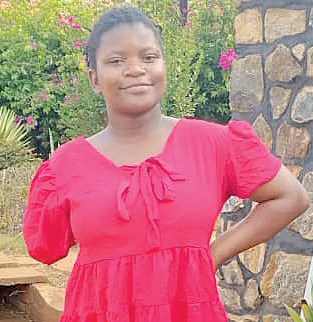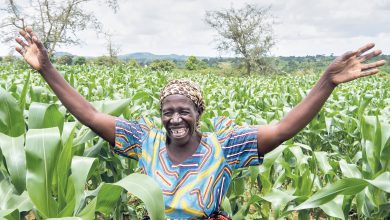Sowing seeds of change
Producing a mix of crops alongside livestock not only guarantees farmers bumper harvests and diversified diets amid climate change, but also improved livelihoods, our contributor ARNOLD MUNTHALI writes:
Patricia Mkandawire, 55, is a devout farmer from Bwengu Extension Planning Area in Mzimba District.

She has built a thriving agricultural business that supports her family of 10.
Throughout her life, she has relied on farming to provide for her eight children using the methods she learnt from her parents.
Her traditional farming practices began to change in 2021 when she joined the Transform programme, funded by the Royal Norwegian Embassy through the Norwegian Church Aid and DanChurch Aid in partnership with Find Your Feet.
The programme has reached 93 119 women, 61 469 men and 38 647 youthful Malawians with interventions on improving agricultural productivity, nutrition and market access across five districts.
The work with the 154 578 farmers’ households focuses on increasing agricultural production, productivity, diversification and resilience to climate change in their communities.
These goals significantly appealed to Mkandawire, who has embraced new farming methods that guarantee her bumper yields from her small plot amid climate change.
The farmer leads by example, guiding 15 farmer followers in climate-smart farming techniques.
In the past four years marked with disruptive dry spells, Mkandawire has recognised the importance of adapting new farming methods that reduce the turning of soil, but improve soil fertility, moisture retention and sponginess.
“The seasons are no longer predictable, but by changing the way I farm, I can ensure my family always has food,” she says.
To achieve this, she has been diversifying and rotating her crops instead of relying on maize alone.
Her efforts are starting to pay off. In 2024, she earned K8.5 million from selling her produce.
Before she joined the project, she used to harvest five bags of maize, from which she earned around K300 000.
Mkandawire invested this income in plastering her home and replacing a glass thatch with iron sheets. She also owns a kitchen with corrugated iron sheeting.
“My dream was to have a strong house for my family, a house that could withstand heavy rains and strong winds. Now it has become a reality,” she says.
Mkandawire also used part of her earnings to cover her daughter’s secondary school fees, ensuring that she continues with education in a country where over a third of girls marry and become mothers before their 18th birthday—the legal marriageable age.
This year, she has invested even more in sorghum, cassava, sweet potatoes, groundnuts and maize across a five-hectare field.
With the five crops, she is hopeful of producing up to K12.7 million.
Beyond crop farming, Mkandawire has embraced livestock production, thanks to the training she received from the Transform programme. She currently owns 10 pigs and 10 goats, selling some when needed to support her household.
“Livestock is another way to make sure I always have income. It has helped me meet urgent needs,” she explains.
Mkandawire’s success reflects a broader transformation taking place across Malawi, fuelled in part by Norway’s long-standing investment in agriculture.
The Transform programme is one of several initiatives funded by Norway to help farmers adapt to climate change and improve market access.
Norway’s approach goes beyond providing resources. It emphasises skills and resilience.
Farmers like Mkandawire are trained to practice farming as a business, adopt new technologies and diversify into livestock and alternative crops.
The initiatives have shown how women, in particular, benefit when given opportunities to lead. The likes of Mkandawire have become role models in their communities, proving that with knowledge and organisation, smallholder farmers can thrive.
The initiatives highlight the importance of sustainable practices such as crop diversification, soil conservation and climate-smart farming.
They also shine a light on the need for value addition, encouraging farmers not just to grow crops, but to process and package them for greater returns through cooperatives.
Cooperatives are supported with value-addition and processing equipment such as cooking oil processing machines, groundnut flour mills, solar dryers for tomatoes, peanut butter making machines, maize shellers, maize mills and groundnut shellers.
By learning new farming methods and working hard, Mkandawire has improved her life and ensured her family has what they need.
She does not just grow crops, but also hope and opportunity.
“My success is not solely my own,” she says. “I share my knowledge with other farmers in my community, helping them build a better future.





